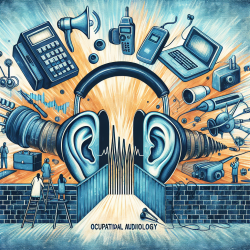As speech-language pathologists, our goal is to provide the most effective therapy to children with disordered speech sound production. The evolution of theoretical perspectives from motoric to phonological in understanding speech sound disorders offers valuable insights for enhancing our clinical practices. This blog post explores how the outcomes of phonological research can inform and improve therapeutic interventions, and encourages further exploration into this vital area of study.
Historically, speech sound disorders were primarily viewed through a motoric lens, focusing on the articulatory processes involved in producing speech sounds. This perspective led to therapy approaches that concentrated on the physical aspects of speech production, such as articulator placement and movement. However, over the past few decades, research has increasingly supported a phonological perspective, highlighting the cognitive and linguistic processes underlying speech sound production.
The shift towards a phonological viewpoint is grounded in evidence that children's speech production errors are systematic and related to their understanding of phonological rules and processes. This suggests that speech sound disorders are not merely a result of motoric dysfunction but are deeply intertwined with linguistic and cognitive factors. By recognizing this, speech-language pathologists can adopt a more holistic approach to therapy that addresses the underlying phonological issues contributing to speech sound disorders.
Implementing Phonological Insights into Practice
To effectively incorporate phonological insights into therapy, clinicians can focus on several key areas:
- Phonological Awareness: Enhancing a child's phonological awareness can have a significant impact on their speech production. Activities that improve the ability to recognize and manipulate sounds in words can help children internalize phonological rules and patterns.
- Minimal Pair Therapy: Using minimal pairs (words that differ by only one phoneme) can help children perceive and produce contrasts between sounds, facilitating the correction of phonological errors.
- Targeting Phonological Processes: Identifying and targeting specific phonological processes that are atypical or delayed can lead to more efficient therapy. For example, focusing on reducing processes such as fronting or cluster reduction can directly address patterns of errors.
- Metaphonological Skills: Developing metaphonological skills, or the ability to think about and manipulate sounds, can support phonological learning. Activities that encourage children to categorize sounds, identify rhymes, and segment words can be beneficial.
By integrating these phonological approaches into therapy, speech-language pathologists can support children in developing a more robust phonological system, which in turn can lead to improvements in speech sound production.
Encouraging Further Research
While the shift from a motoric to a phonological perspective has significantly advanced our understanding of speech sound disorders, there is still much to learn. Ongoing research is essential to uncover the intricate relationships between phonology, cognition, and speech production. Speech-language pathologists can contribute to this body of knowledge by engaging in research, staying informed about the latest studies, and applying evidence-based practices in their therapy.
As practitioners, we should also advocate for and participate in interdisciplinary research efforts that explore the connections between speech sound disorders and broader linguistic and cognitive development. Such research can provide deeper insights into the nature of these disorders and inform more effective therapeutic approaches.
In conclusion, the evolving views of children's disordered speech sound production from motoric to phonological highlight the importance of a comprehensive approach to therapy that addresses the cognitive and linguistic underpinnings of speech sound disorders. By implementing the outcomes of phonological research and encouraging further study, speech-language pathologists can enhance their practices and better support the children they serve.
To read the original research paper, please follow this link: Evolving Views of Children's Disordered Speech Sound Production from Motoric to Phonological.










